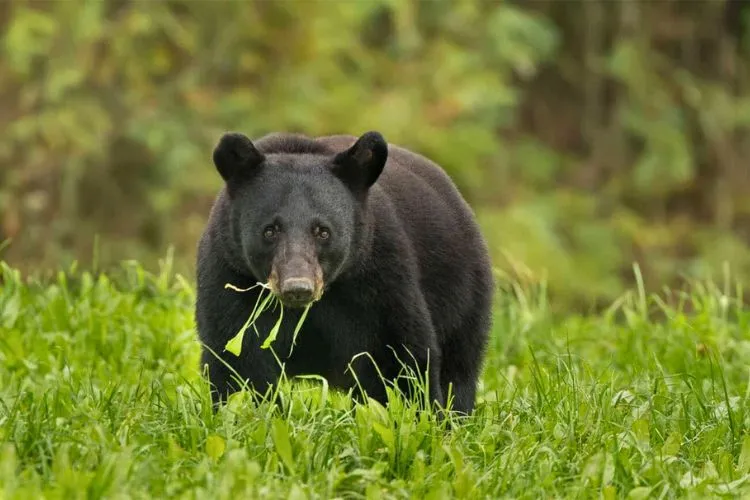Embarking on a wilderness adventure stirs excitement and a bit of apprehension, particularly about food storage and bear encounters.
But, can bears smell dehydrated food?
Well, this is a common question among outdoor enthusiasts, as they always wonder whether bears can sniff out dehydrated food, a lightweight, convenient option for backpackers.
This article delves into the olfactory abilities of bears, uncovering the science behind their keen sense of smell and its implications for hikers carrying dehydrated meals.

Drawing on research and expert insights, we explore practical tips for minimizing attractants and safeguarding food from these curious, often hungry, wild inhabitants.
Join us as we unravel the mysteries of bears’ remarkable noses and their interest in our dehydrated delicacies.
Can Bears Smell Dehydrated Food?
Yes, bears can smell dehydrated food. Bears possess an extraordinarily keen sense of smell, far superior to humans, and rivaling that of dogs.
This heightened olfactory capability allows them to detect food sources from miles away, including the scent of dehydrated foods.
Although dehydrated food might have reduced odors compared to its fresh counterparts, it still emits smells that can attract bears. The packaging of dehydrated meals, especially if opened and not properly sealed again, can also leave scents that lure in these curious animals.
Therefore, when camping or hiking in bear country, it’s crucial to store dehydrated food, along with all other attractants, in bear-resistant containers or use bear hangs to minimize the risk of encounters.
Proper food storage practices are essential not just for camper safety, but also for protecting bears from becoming habituated to human food.
Proper Storage and Handling of Dehydrated Foods in Bear Country
When backpacking in bear country, the proper storage and handling of dehydrated foods, alongside all food-related items, are crucial for minimizing the risk of attracting these majestic yet potentially dangerous wild animals.
Dehydrated foods, due to their reduced weight and volume, are a favorite among backpackers. However, even these must be managed with care. Here are detailed recommendations for managing food to prevent bear encounters:

- Use Bear-Resistant Containers: Invest in certified bear-resistant canisters for storing food, toiletries, and any item with a scent. These containers are specially designed to resist bears’ attempts at opening them. Always lock the container as instructed after each use.
- Employ Bear Hang Techniques: If bear canisters are not an option, use a bear hang. This involves hanging your food bag at least 10-15 feet off the ground and 4-5 feet from the tree trunk. Ensure this is done away from your sleeping area, ideally downwind.
- Prepare and Repackage: Before your trip, repackage dehydrated foods into odor-proof bags to minimize scents. Remove as much air as possible from the bags to reduce odor emission and volume.
- Cook and Eat Away From Sleeping Area: Establish a cooking and eating area at least 100 yards away from where you intend to sleep. This helps to keep lingering food odors away from your sleeping site, reducing the risk of a curious bear investigating.
- Clean Thoroughly After Meals: Ensure all cooking equipment, utensils, and eating areas are meticulously cleaned after use. Collect and pack out all food scraps and waste.
- Store Toiletries and Other Scented Items Along with Food: Bears are attracted to any scent, not just food. Store toiletries, lotions, and similar products in bear-resistant containers along with your food.
- Follow Local Guidelines and Regulations: Some areas might have specific requirements or recommended practices for food storage in bear habitats. Always check local regulations and guidelines.
- Be Prepared to Use Bear Spray: While not directly related to food storage, carrying and knowing how to properly use bear spray provides an added layer of safety in the event of an encounter.
- Inspect and Secure Campsite: Upon arriving at a campsite, inspect the area for signs of bears or bear activity. Secure all food and scented items immediately upon setting up camp, even if you plan to consume or use them shortly after.
- Educate Yourself and Group Members: All members of your group should be aware of proper food storage techniques and bear safety practices. Sharing knowledge can prevent accidental attractants from being left accessible.
Following these recommendations can significantly reduce the likelihood of bear encounters, making your wilderness adventure safer and more enjoyable. Remember, the goal is to protect both yourself and the bears; proper food storage is a responsibility, not just a suggestion, when venturing into their territory.
Conclusion:
Scientific studies and anecdotal evidence reaffirm the fact that bears can indeed smell dehydrated food. With an accurately powerful sense of smell, they can detect food sources from miles away.
This fairly advanced olfactory ability far surpasses even the most proficient bloodhounds, allowing them to find dehydrated food regardless of its containment.
Therefore, when venturing into bear territories, it’s of paramount importance to take precautions in storing and disposing food. Dehydrated food might feel convenient for backpackers and campers, but remember, its smell might be inviting to our furry friends in the wild.
While their curiosity and hunger-driven pursuits are natural instincts, efforts on our part can help maintain a delicate but necessary balance between human enjoyment of wild spaces and wildlife preservation.


